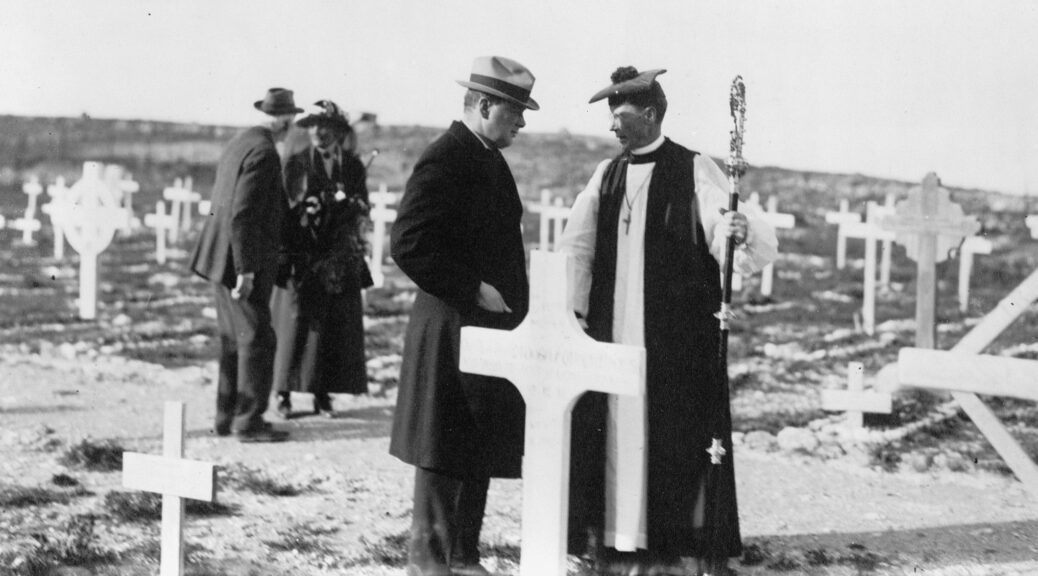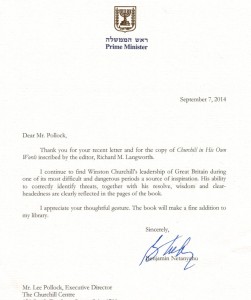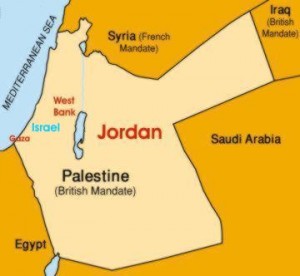
“Jarring Gong”: Benjamin Netanyahu on Winston Churchill
Updated from “Netanyahu on Churchill,” 2014. It seems appropriate to renew this note, together with some Churchill words which thoughtful readers may deem appropriate to current contentions.
Nine years ago Prime Minister Benjamin Netanyahu paid Sir Winston Churchill a compliment and this writer a minor one, in his thanks for a gift of my book, Churchill by Himself.

The first four editions collected 4000 annotated quotations, along popular aphorisms WSC never said (“Churchillian Drift”). A fifth expanded edition is scheduled for 2024. With over 5000 quotations and half a million words, it will extend our knowledge of Churchill’s timeless wisdom and devotion to liberty.
Mr. Netanyahu…
…was not new to Churchill back then. He is one of the few statesmen who pay more than routine lip-service to Sir Winston’s role in history. Unlike many who invoke his name, Mr. Netanyahu has actually read Churchill extensively, and applied his thought frequently.
With thanks for those kind remarks I quote Prime Minister Netanyahu at the United Nations on 24 September 2009. There he demonstrated an ability to draw guidance from Churchill’s words, while not using them to declare what WSC would do today….
A democracy legitimately defending itself against terror is morally hanged, drawn and quartered, and given an unfair trial to boot. By these twisted standards, the UN Human Rights Council would have dragged Roosevelt and Churchill to the dock as war criminals….
Over seventy [now over eighty] years ago, Winston Churchill lamented what he called the “confirmed unteachability of mankind”: the unfortunate habit of civilized societies to sleep until danger nearly overtakes them. Churchill bemoaned what he called the “want of foresight, unwillingness to act when action will be simple and effective, lack of clear thinking, confusion of counsel until emergency comes, until self-preservation strikes its jarring gong….”
I speak here today in the hope that Churchill’s assessment of the “unteachability of mankind” is for once proven wrong. I speak here today in the hope that we can learn from history—that we can prevent danger in time. In the spirit of the timeless words spoken to Joshua over 3000 years ago, let us be strong and of good courage. Let us confront this peril, secure our future and, God willing, forge an enduring peace for generations to come.
“Wise words, Sir, stand the test of time”*
*Churchill, House of Commons, 12 May 1901
From WSC, “Fifty Years Hence,” Strand Magazine, December 1931, reprinted in Thoughts and Adventures (1932):
Certain it is that while men are gathering knowledge and power with ever-increasing and measureless speed, their virtues and their wisdom have not shown any notable improvement as the centuries have rolled. The brain of a modern man does not differ in essentials from that of the human beings who fought and loved here millions of years ago. The nature of man has remained hitherto practically unchanged. Under sufficient stress—starvation, terror, warlike passion, or even cold intellectual frenzy—the modern man we know so well will do the most terrible deeds, and his modern woman will back him up….
We have the spectacle of the powers and weapons of man far outstripping the march of his intelligence; we have the march of his intelligence proceeding far more rapidly than the development of his nobility. We may well find ourselves in the presence of “the strength of civilization without its mercy.”
Britain’s Mandate of Palestine

In 1947, Attlee’s Labour Government scuttled from Palestine in a disgraceful exit, not dissimilar from another disgrace in 2021. In November the United Nations offered a Partition Plan for the 1/7th of Palestine that wasn’t already 100% Arab. (6/7ths was Jordan.) The plan was greeted with rejoicing in Jewish communities and outrage among Arabs. Civil disturbances began and the British refused to intervene. Soon there was a full-scale civil war. The Arabs lost, like the French lost Alsace-Lorraine in 1870, and the Germans Silesia in 1944. Vast shifts of population occurred in all three instances.
The world of 1948 ignored the diasporas. No one much cared. Any more than anyone today cares about Armenian genocide going on at this writing. “History doesn’t repeat, but it sometimes rhymes.” Evidently there’s nothing in Armenia for power-hungry politicians.
In Parliament on 30 July 1951, Churchill sadly reviewed Britain’s contribution to the Palestine morass:
The decline of our influence and power throughout the Middle East is due to several causes. First, the loss of our Oriental Empire and of the well-placed and formidable resources of the Imperial armies in India. Second, it is due to the impression which has become widespread throughout the Middle East that Great Britain has only to be pressed sufficiently by one method or another to abandon her rights or interests in that, or indeed any other, part of the world. A third cause is the mistakes and miscalculations in policy which led to the winding up of our affairs in Palestine in such a way as to earn almost in equal degree the hatred of the Arabs and the Jews.
Churchill on Terrorism
On 8 July 1920, before there even was a Palestine Mandate, Churchill denounced the massacre of Indians at Amritsar. Joseph Montague Kenworthy, 10th Baron Strabolgi (1886-1953) was a Liberal MP (1919–26) and Labour MP (1926–31). Echoes of Churchill’s words may be heard again today: more “rhyming” of history.
What I mean by frightfulness is the inflicting of great slaughter or massacre upon a particular crowd of people, with the intention of terrorising not merely the rest of the crowd, but the whole district or the whole country.… Frightfulness is not a remedy known to the British pharmacopoeia.…
I have heard the Hon. Member for Hull [Lieutenant-Commander Kenworthy] speak on this subject. His doctrine and his policy is to support and palliate every form of terrorism as long as it is the terrorism of revolutionaries against the forces of law, loyalty and order. Governments who have seized upon power by violence and by usurpation have often resorted to terrorism in their desperate efforts to keep what they have stolen….
Unteachable mankind
Neither his opponents nor supporters would dispute Netanyahu’s Churchill reference today. With absolutely no more credentials than the reader, it’s possible to guess that the latest war will not be just another protracted street fight. It is very likely to be much worse than that, and the end of somebody, or some thing. At God knows what cost. Netanyahu was canny to invoke those words. Fifteen years later they are worth quoting in full:
When the situation was manageable it was neglected, and now that it is thoroughly out of hand we apply too late the remedies which then might have effected a cure. There is nothing new in the story. It is as old as the Sibylline books. It falls into that long, dismal catalogue of the fruitlessness of experience and the confirmed unteachability of mankind. Want of foresight, unwillingness to act when action would be simple and effective, lack of clear thinking, confusion of counsel until the emergency comes, until self-preservation strikes its jarring gong—these are the features which constitute the endless repetition of history. —WSC, House of Commons, 2 May 1935
Further reading
“When Did Churchill Become a Zionist?,” 2022
“Churchill at the Stroke of Pen: Jordan and the Indian Army,” 2021
“Churchill and Lawrence: A Conjunction of Two Bright Stars,” 2020
“How Winston Churchill Preserved the Dream of Israel, July 1922,” 2018







2 thoughts on ““Jarring Gong”: Benjamin Netanyahu on Winston Churchill”
Lord Roberts’ book review of Bibi’s autobiography (in the Claremont Review of Books) is entitled, very appropriately, “The Churchill of the Middle East!”
–
That’s kind of him but I’m not sure B.N. would accept it, nor should he.
Thank you for a great article, as usual. Coincidently, last night I was perusing your book Churchill by Himself (2008), the chapter on ‘Nations,’ and saw, sadly, on page 176, Churchill’s comment on events in Palestine 85 years ago, November 24, 1938.
Churchill said: “Do not let it be forgotten that people are dying there, that they are being executed and meeting grisly deaths from day to day and week to week, while here all that can be done is to have from time to time Debates and pay each other compliments, and, above all, run no risks of taking any decision.” The only part that does not still ring true is the part about compliments!
Comments are closed.